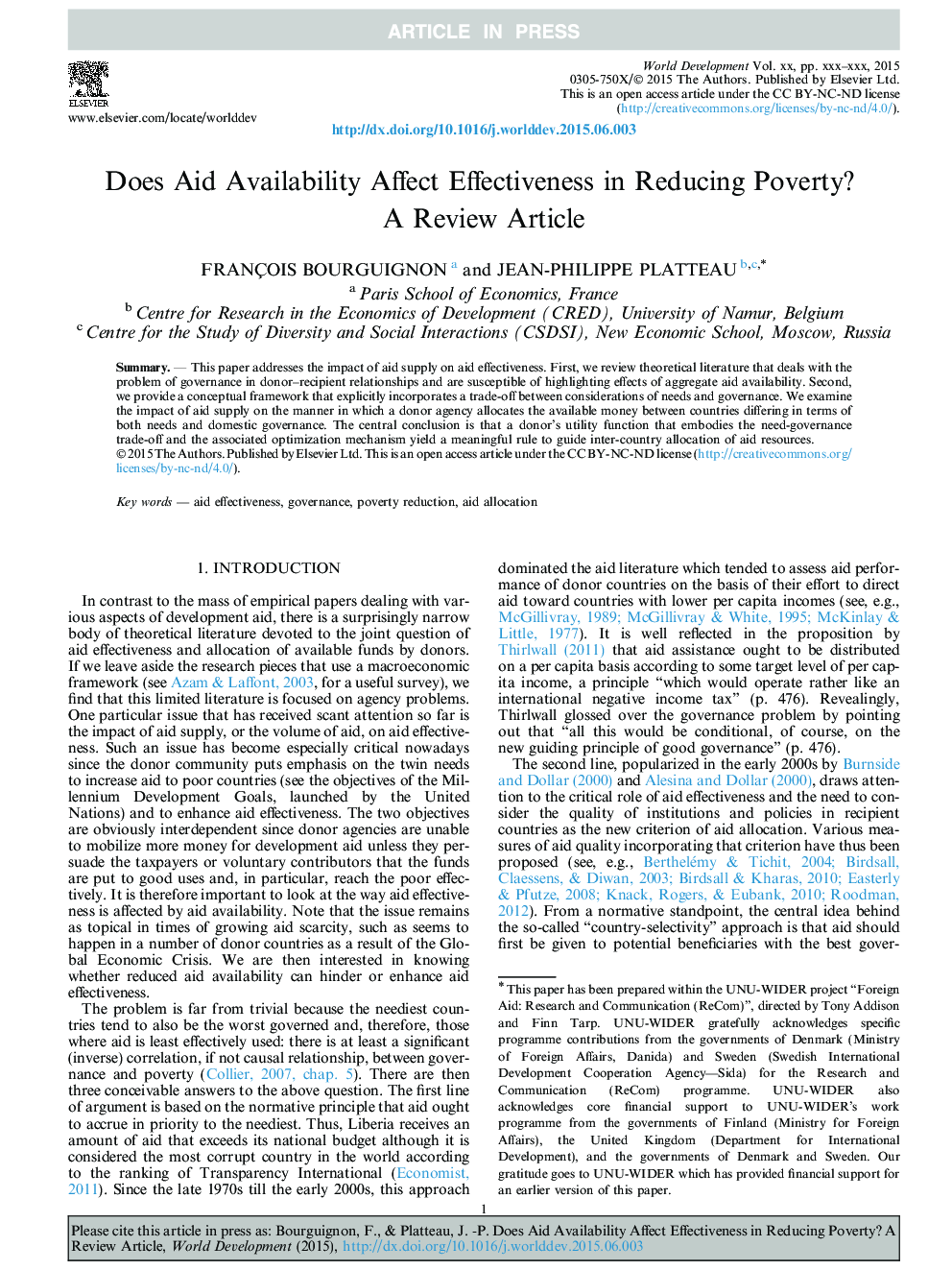| Article ID | Journal | Published Year | Pages | File Type |
|---|---|---|---|---|
| 5105236 | World Development | 2017 | 11 Pages |
Abstract
This paper addresses the impact of aid supply on aid effectiveness. First, we review theoretical literature that deals with the problem of governance in donor-recipient relationships and are susceptible of highlighting effects of aggregate aid availability. Second, we provide a conceptual framework that explicitly incorporates a trade-off between considerations of needs and governance. We examine the impact of aid supply on the manner in which a donor agency allocates the available money between countries differing in terms of both needs and domestic governance. The central conclusion is that a donor's utility function that embodies the need-governance trade-off and the associated optimization mechanism yield a meaningful rule to guide inter-country allocation of aid resources.
Related Topics
Social Sciences and Humanities
Economics, Econometrics and Finance
Economics and Econometrics
Authors
François Bourguignon, Jean-Philippe Platteau,
